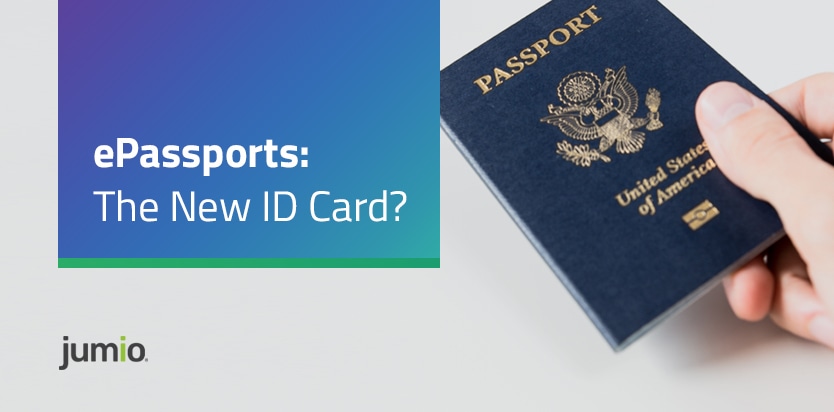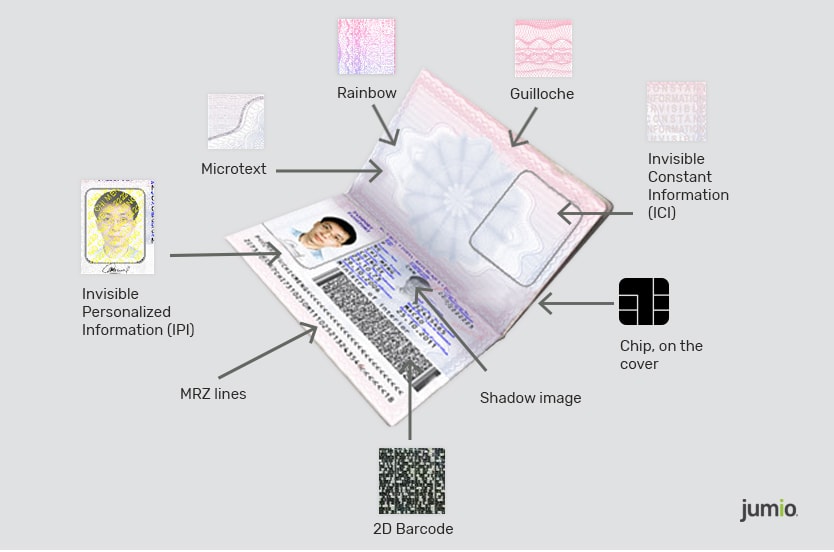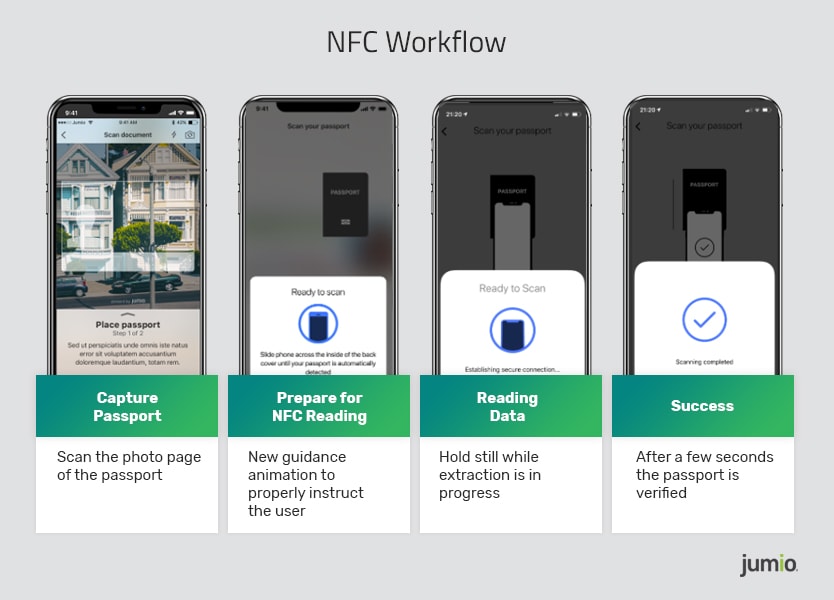
The problem with most plastic forms of government-issued IDs is that they can be forged or digitally manipulated with ease, and counterfeiters can now order high-resolution printing equipment and some basic security inks online. They often change the personalized data of an existing ID document through methods such as scratching, cutting, dissolving or using solvents or heat.
Increasingly, governments are embedding biometric technology into the physical ID. For example, new biometric passports (or e-passports or digital passports) are a combination of paper and electronic passport and contain biometric information that can be used to authenticate the identity of travelers.
This passport contains a special chip that contains the holder’s photograph and personal information (full name, date of birth, issue date, and other additional information). The chip contains the same information that is printed on the passport’s data page along with the person’s digital photograph.
Why are e-Passports Superior to Plastic ID Cards?
These e-passports offer a number of compelling security features that could potentially get baked into other government-issued ID types down the road:
- Intricately designed passport pages, complex watermarks and a data chip
- The biometric chip contains all crucial personal information such as digital signature data, which helps in authenticating the passport
- The biometrics are considered more reliable than a traditional passport photo or a PIN, as it uses personal traits such as facial or eye maps and fingerprints as primary identification features
- All data stored on an e-passport (including a picture that is stored on the hardcopy of your passport) is encrypted
- Security features which make it more difficult to change data recorded on a passport and to prevent unauthorized reading or skimming of data stored on the e-passport chip
Here’s a quick visual depiction of all the security featured embedded into a modern e-passport.
NFC: The Intersection of e-Passports & Identity Verification
This month, Jumio introduced the ability to scan and capture the information contained within an e-passport’s chip. Apple and Android now offer the ability to use their smartphones to read NFC tags which can, in turn, read the information from the e-passport chips.
Near Field Communication (NFC) is a short-range wireless connectivity standard that uses magnetic field induction to enable communication between devices when they’re touched together or brought within a few centimeters of each other, which then establishes a peer-to-peer network to exchange data.
The Jumio NFC-Enriched SDK
In general, for identity verification, mobile SDKs provide the best results in terms of user experience, fraud detection/deterrence and quality of data extraction. By incorporating this new NFC reading capability, Jumio can further enhance the onboarding experience for users and business customers by supporting e-passports. While the NFC capability can only address a portion of the supported ID documents, it offers significant potential if governments start including chips into other ID documents (e.g., driver’s licenses and ID cards).
Here’s how NFC captures and authenticates e-passports with Jumio.
- Capture a picture of the e-passport’s data page (i.e., the page with the user’s photo)
- Jumio then reads and extracts the data from the e-passport’s chip
- If valid, Jumio verifies the passport in seconds
Oh, the Places We Can Go
This method of ID verification offers a number of compelling advantages, including:
- Data Extraction: With NFC, we can capture 100% accurate data extraction
- Spoof-Proof: A big benefit of NFC is that we’re validating information against government-issued certificates which makes it impossible to spoof
- Fully Automated: Because the chip information is automatically scanned, the verification process is nearly instantaneous
- Global Coverage: We can support e-passports from 86 countries (and the lists continues to grow)
- Contactless: The NFC capture can be performed anywhere without any physical contact
While the current functionality is limited to e-passports, online identity verification solution providers should be able to extend this chip-reading functionality to other types of ID documents. Jumio is blazing new trails with NFC, and we think it’s just a matter of time before the use of NFC becomes a principal paradigm for online identity verification.
Given the global security landscape and the increased threat of terrorism, it just makes sense to evolve beyond dumb plastic to biometric-based e-passports. Together these advanced technologies can effectively combat identity theft, sophisticated fraud and other national security threats.


